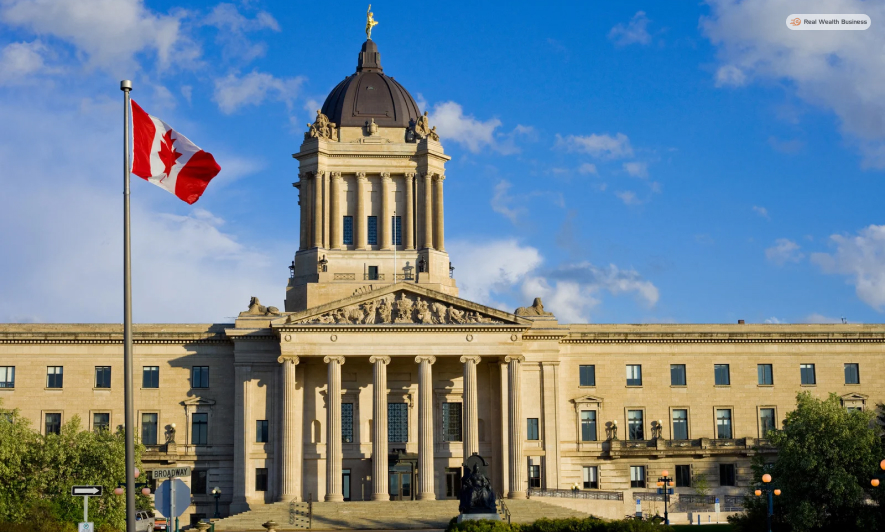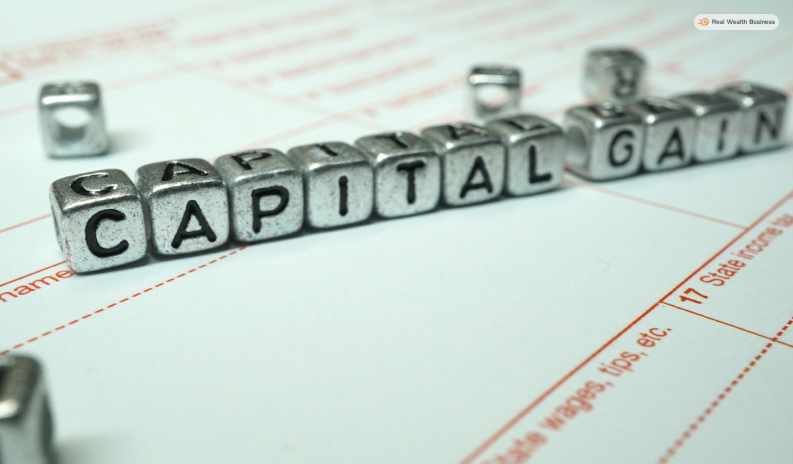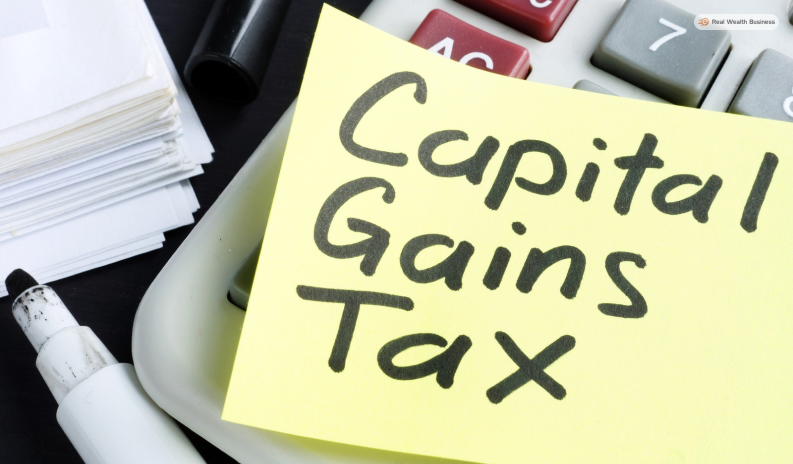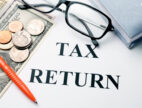Capital Gains Tax in Canada: Why You MUST Know About This!
by Mashum Mollah Finance 23 August 2024

Capital gains tax is one of the most unique passive incomes every individual should know about. This can help them get tax rebates and lower their overhead costs. However, understanding Canada’s capital gains tax is a challenging feat.
Thankfully, we have done all the legwork and brought to you some of the most important and crucial points that you need to remember to make the right decisions when it comes to understanding capital gains tax.
Here we go!
What Is Capital Gains?

Whenever a person sells an asset at a higher price than the buying price, her or she makes a capital gain. For example, you have bought land for $100. A year later, you sell the same patch of land for $150. Then, the extra $50 is your capital gains.
Hence, you will be subjected to capital gains or losses whenever you buy or sell something. Both are like the different sides of the same coin therefore, these two concepts are intertwined.
Capital Loss
On the other hand, Capital Gains Loss is the antithesis of capital gains. In other words, this pertains to the loss you incur while buying or selling a product. Like for example, You have purchased a patch of land for $150. About a year later, you sell the same patch of land for $100.
Capital gains and losses tax was created to monitor how much money businesses make or lose while conducting operations. Therefore, these are monitoring tools that organizations use to study the financial capability or situation of a company.
Canada Capital Gains Tax Overview

Financiers often laud capital gains tax as a lucrative means to earn passive income. They allow businesses to earn tax rebates on the gains and losses they make during a transaction. As a result, knowing Canada Capital gains tax is crucial for Starting a business in Canada.
Capital gains taxes are classified with other passive incomes. However, these taxes operate differently than other passive incomes. several factors determine the taxation of this form of tax. Capital gains tax is somewhat unique in many senses.
Here are some of the essential pointers that you need to know to learn more about capital gains tax in Canada:
- Firstly, capital gains tax is added to your income in the year the transaction took place. However, if the capital gains remain unrealized, then the situation drastically changes. As a result, you can defer capital gains with more ease. However, unlike income tax, you can only rebate a portion of the tax and not the whole amount.
- Secondly, your total income for the year dramatically determines the overall capital tax paid. If your income increases, your tax bracket increases as well. Therefore, go through those laws carefully to get a better understanding.
Canada Capital Gains Tax Inclusion Rate
Before 2024, the overall inclusion rate of Capital gains tax in Canada was around 50%. However, the Canada Capital Gains Tax laws have drastically changed. Therefore, keep track of these changes in order to know ways to potentially delay, reduce, or avoid capital gains taxes on stocks.
The Canadian government decided to revise the Canada capital gains tax bracket. This revision helped the government to increase the overall inclusion rate. As a result, you must be vigilant about the shifting sands of capital gains tax at all times.
As of the 2024 mandate, the inclusion rate was revamped, and 50% was revised to 66.67%. However, this is done in two distinct stages. The overall inclusion rate for an individual is 50% of the first $250,000. Beyond that, the individual would be charged 66.67%. Meanwhile, corporations must pay a base rate of 66.67% in all their transactions.
Canada Capital Gains Tax Rate
In Canada, capital gains tax is levied in two distinct stages. The first stage involves individuals. Calculating capital gains or any other tax rebates for a corporation is easy as it is subjected to a base rate. Therefore, this section will primarily focus on individual tax brackets.
Individual capital gains tax in Canada is a complicated matter. Capital gains tax is based on your marginal tax rate. Combine that with 50% and 66.67%. This should provide you with a clear picture of the Canada capital gains tax rate.
But the calculation is a different deal altogether.
How Do You Calculate Capital Gains & Losses?

Knowing about the Canada capital gains tax is never enough. You need to understand the different nuances effectively. This section would help you with that.
- Proceeds: Proceeds are the total money gained or lost during a transaction. Therefore, any and every overhead cost that was involved in the transaction should be deducted.
- ACB: ACB is an umbrella term that primarily defines the exact cost one has to pay during a transaction. These include overhead costs like acquisition fees, commissions, etc. Therefore, determining the ACB of a land can be more complex than deciding the ACB of a car.
- Outlay & expense: Outlay and expense is a broader term that includes the cost of marketing, employee (if any) cost, transportation, legal fees, etc.
All these things add and contribute to the overall essence of Canada capital gains tax. Therefore, you must factor in these aspects to make the proper projection or calculate Canada capital gains tax.
Otherwise, you may be botching up the calculations. Which can land you in a world of financial trouble.
Ways To Minimize Canada Capital Gains Tax

Every year, more and more businesses have started using this rebate to bring down operation costs legally.
However, you can only do this if you know how to potentially delay, reduce, or avoid capital gains taxes on stock. Otherwise, you might end up in jail as tax evasion is a federal crime in Canada, and the punishment is severe.
Therefore, stick around and learn how you can get tax rebates from the government using legal channels so that you do not run into trouble in the long run.
Here we go!
Step #1
The foremost thing you can do is understand how the tax is calculated. A tax-saving strategy will only work if you properly know the tax calculations. Therefore, your primary job is to learn how the capital gains tax is calculated.
This knowledge includes the base rate of tax, the brackets, etc. Therefore, learn about the calculations to clearly understand how to reduce Canada capital gains tax.
Step #2
Holding your investment is an essential part of the whole deal. Therefore, you must hold all your investments in registered accounts. These accounts include the RESP, FHSA, TFSA, and RRSP.
These accounts are tax shields. Investments held in these accounts are not subjected to taxation. This makes them perfect for growing your investments without any hassle.
Therefore, read more about these registered accounts and start holding your investments in these accounts for rebates.
Step #3
Thankfully, losses can also become beneficial if you know how to use them. The government cannot levy taxes on capital losses per the current mandate. As a result, you should use this knowledge to reduce your overall payable taxes.
Therefore, keep a detailed record of all the losses that you made in a year and try to defer or lower your taxes using this. However, navigating through capital gains and losses simultaneously can be difficult. Therefore, you might have to consult a professional.
This would enable you to get the best benefits.
Step #4
Few people know this, but Canada Capital Gains Tax laws allow individuals to show residential properties as assets. However, if your residence is your primary residence, you will be subject to a rebate. Here are some of the conditions that you need to fulfil to gain the rebate:
- You are the owner of the residence where you are currently residing.
- It would help if you showed that your immediate family has spent the year living in the house in case you stay outside of the country or state.
- You do not have any other property listed as your primary property.
The Final Thought
In summation, these are some points you need to remember if you are looking to capitalize your Canada capital gains tax. However, it would help if you remembered that getting tax rebates and tax evasion are very different.
Therefore, consider hiring a professional to do the job without hassle or problems. Keep following our page for more such content.
Additional Reading:



































































































